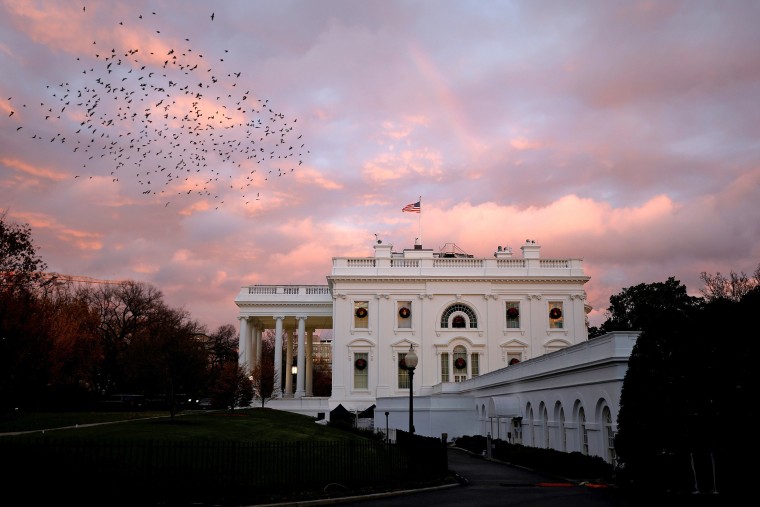For months, President Joe Biden and congressional Democratic leaders have touted an ambitious, two-track approach to infrastructure. The first part of the plan was a bipartisan package focusing on domestic priorities such as bridges, broadband, and transit, while the second part would emphasize "human infrastructure" -- health care, child care, housing, education, climate, et al. -- and would not require Republican support.
The first part of the plan was surprisingly successful late yesterday morning, with the Senate approving a $550 billion package with 69 votes, picking up the support of more than a third of the GOP conference in the chamber. Shortly before 4 a.m. this morning, the second part of the plan advanced, too.
The Senate passed a sweeping Democratic budget resolution along party lines early Wednesday morning that would make it possible to expand Medicare, education and environmental measures largely through higher taxes on the wealthy and corporations.... Leaving the Capitol after the marathon "vote-a-rama," Senate Majority Leader Chuck Schumer, D-N.Y., said, "Well it's been quite a night. Look, we still have a ways to go, and we've taken a giant step forward toward transforming America."
At issue was a $3.5 trillion blueprint -- known on Capitol Hill as a budget resolution -- that passed on a 50-49 vote held well ahead of sunrise in D.C. It's part of the reconciliation process that Democrats are utilizing to advance a series of key progressive goals without having to worry about the Republican minority derailing their plans.
As NBC News' report added, the list of policy measures will not be short:
Democrats said earlier this week that the legislative package they plan to write would fund programs to provide aid to families, combat climate change and expand health care and education programs. Democrats are planning to include language that would establish universal Pre-K for 3- and 4-year-olds, make community college tuition-free for two years, provide green cards to millions of immigrant workers and families and reduce prescription drug costs, among other things.
For the Biden White House, the early morning vote was another victory that advances the president's agenda, but the governing challenge is just getting started.
As lawmakers leave Capitol Hill for their August break, Democratic negotiators will begin the daunting task of filling in the gaps of an ambitious outline, knowing that they have tiny majorities in both chambers, leaving party leaders with effectively no margin for error.
Craft a bill that's too moderate, and Democrats' left flank will balk. Write a bill that's too progressive, and the party's centrists will kill it.
Adding to the stakes is the fact that the bipartisan infrastructure plan that passed the Senate yesterday will now sit on the House's backburner: rank-and-file House Democrats and their leaders have all agreed that a prerequisite to passage in the House is Senate passage of an acceptable reconciliation bill. Once that happens, and it meets the House majority's approval, the lower chamber will then act on both bills.
As for the Senate, Sen. Kyrsten Sinema (D-Ariz.) announced two weeks ago she's uncomfortable with $3.5 trillion in investments -- the Arizonan didn't say what she wanted to cut or why -- and Sen. Joe Manchin (D-W.Va.) released a statement this morning expressing "serious concerns" about the plan, suggesting that it might make inflation worse.
The West Virginian's statement was difficult to understand, in part because he seemed to conflate one-time COVID-related spending with long-term domestic investments, and in part because Manchin overlooked the fact that the reconciliation plan would be offset by new tax revenue, which eases inflationary effects. (Presumably, someone will help explain this to Manchin before the next steps in the process.)
Regardless, a once-in-a-generation opportunity is on the line for Democrats. Buckle up.

